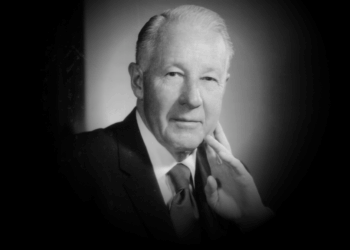There’s a new “nativist slogan” gaining popularity on the Right. It’s “Heritage American,” and it’s meant to describe the core population of America. Mainstream outlets, such as POLITICO and the New York Times, have investigated the term as another sign of the right’s apparent “racism.”
“Heritage Americans” isn’t just a term limited to anons on social media. Government agencies now indulge it with posts celebrating American heritage and the people who settled the frontier. Of course, liberal journalists see something nefarious here, but who’s really out of touch with normal Americans: The DHS account celebrating American heritage, or the journalist saying that’s racist?
It’s easy to come up with terminology and ideas on the internet. Does the term Heritage American actually describe something that’s real and that could become a serious social force? While it’s a concept that can appeal to many conservatives, it may struggle to make headway in modern America.
What exactly is a Heritage American? POLITICO’s Ian Ward offered a decent definition in his article on the topic:
In its most basic sense, the phrase refers to present-day Americans who trace their ancestral roots to the colonial period, or shortly thereafter. Depending on whom you ask, the category also includes the offspring of Indigenous Americans and the ADOS, or “American descendants of slavery.” But at its most fundamental, said Engel, “heritage American” refers to the offspring of the Anglo-Protestant and Scotch-Irish settlers — in other words, the white people — who populated the original colonies before heading west to settle the American frontier.
Ward notes that J.D. Vance and prominent conservatives now allude to the concept, and wonders whether this picture of a “vanishing America” is rooted in reality: “Critics of the term have pointed out that the early American colonists, far from sharing a well-defined cultural inheritance, were actually bitterly divided along religious and political lines…. To the degree that a distinctive American identity did emerge out of westward expansion, they add, it drew on various Indigenous and immigrant cultures the settlers encountered along the way — or at least the cultures that those settlers didn’t suppress or exterminate.”
This is idiotic. Ward links to an asinine article claiming America has always been “multicultural” because various people from the British isles settled here in the colonial days. That author, Leighton Woodhouse, bases his argument on a poor reading of David Hackett Fisher’s Albion’s Seed. The book asserts certain British folkways and cultures shaped America. Woodhouse assumes the differences between Puritans and Cavaliers made America extremely diverse at the beginning—so Little Mogadishu in Minneapolis is the natural extension of our colonial ancestry.
Certainly those who settled New England and those who settled Tidewater Virginia weren’t identical. But these settlers, no matter where, had an Anglo-Protestant cultural identity. They spoke English, saw themselves as Protestant, traced their heritage back to the British Isles, and shared many of the same traditions and political values. The early colonies were not the Balkans. The Revolution was based on the colonists’ common sense that their rights as Englishmen had been violated. This indicates a core ethno-cultural identity that was present at the Founding.
Throughout American history, the core population stressed its distinctiveness in response to perceived foreign threats. Nativism expressed the fear that new arrivals would wipe out the real America and animated millions of Americans to demand immigration restriction in the early 20th century.
But the core population has long struggled to figure out what to call themselves. Sometimes they went with Native Americans, which fell out of use and now only refers to American Indians. For a time, Anglo-Saxon became the preferred term. But it’s now an anachronism only used as a pejorative by the likes of Vladimir Putin and other non-Americans.
Hence, the demand for a new term like “Heritage Americans.” There have been a number of terms proposed for this group over the years. Legacy Americans came to prominence thanks to Tucker Carlson, but it’s no longer used much. Some pushed for “Founding Stock” or “Old Stock,” but those haven’t caught on. Your humble writer suggested “Settlers” three years ago. Not even I use that anymore. Heritage American won out.
It has its merits. It evokes a term–heritage—with mostly positive connotations. Liberals look stupid when they freak out over such an anodyne term. People like the idea of American heritage, which the Trump administration likes to trumpet. The ambiguity of the term also adds to its value. Ian Ward notes that the term could just be a euphemism for white people and critics charge that it is a way to “to launder white nationalism with facially neutral language.” Liberals will always claim that but its advocates can dismiss it by simply saying they prize our national heritage and its culture. Heritage American is more palatable to the public than “white.”
But there are issues with it. One is that the Heritage Americans don’t know that they are Heritage Americans. This is an online term and not coming from the people themselves. They might not be offended by the term, but it’s not how the heartlanders see themselves. They simply call themselves Americans. Millions of Anglo-Saxons simply list their ethnicity as “American” for the census. There is some instinctual idea of what constitutes a “real American,” such as speaking English and standing for the national anthem. But there is not an explicit understanding of group identity among these people. Many think anyone can be a true American just like them, so long as they follow a few rules and norms.
It’s also debatable whether the Dissident Right/New Right/Online Right or whatever you want to call it is truly Heritage American itself. It’s a remarkably diverse contingent. While the New Right is certainly majority white, there are plenty of people who are far from the settlers within it. The person who claims to have coined “Heritage Americans” is an Indian anon monikered Indian Bronson. He’s not an outlier in this sphere, as many are recent immigrants and Ellis Islanders.
Subscribe Today
Get daily emails in your inbox
Even if some New Rightists are Heritage Americans, they often appear as “Dissenting Americans” rather than as representatives of generic Americans. The favored religions are traditional Catholicism and Eastern Orthodoxy, not low-church Protestantism. These right-wingers aren’t as enthusiastic about “all men are created equal” and American victory in the Second World War as the average Heritage American. Many Dissident Rightists are critical of Middle America’s cultural libertarianism that encourages people to “live and let live.” The Online Right certainly isn’t so devoted to sports fandom as generic Americans are. Online Heritage Americans care way more about their heritage than offline Heritage Americans.
The actual Heritage Americans do have their own culture, but it might not meet the ideal of what its online advocates imagine. Sorority rush videos, Morgan Wallen, country clubs, Hilton Head vacations, college football tailgates, NASCAR, and many other things are beloved by Heritage Americans. In their mind, these things define the individual Heritage American more than their ancestral lineage.
The New Right would like to awaken a sense of group consciousness among the generic Americans. It hopes it can do so through social media posting. It could be possible—only the future can tell. But even if Heritage American might be a creature of the online world, it still makes for good political aesthetics; Heritage Americana offers bright young people a compelling right-wing framework to champion immigration restriction, hostility to DEI, and genuine patriotism. Heritage American identity may not be real outside of the internet just yet, but it’s real enough to youthful conservative activists and content creators.











